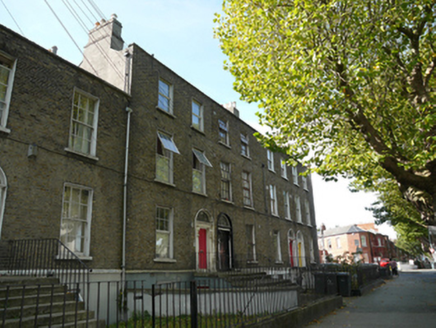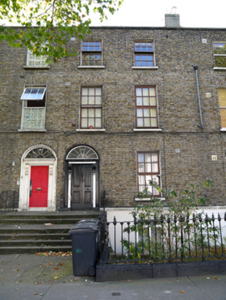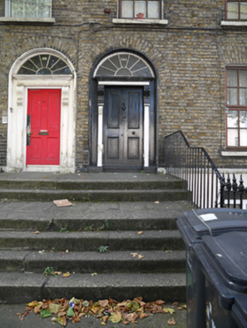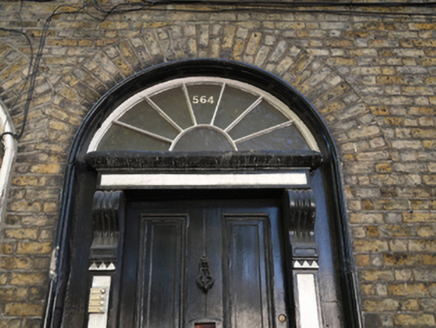Survey Data
Reg No
50011110
Rating
Regional
Categories of Special Interest
Architectural
Original Use
House
In Use As
Apartment/flat (converted)
Date
1820 - 1840
Coordinates
316425, 235559
Date Recorded
29/09/2011
Date Updated
--/--/--
Description
Terraced two-bay three-storey house over exposed basement, built c.1830, as one of four similar houses with front railed garden. Now in multiple occupancy. M-profile slate roof hidden behind parapet wall with granite coping and stepped rendered chimneystacks with clay pots to west party wall. Yellow brick walls laid in Flemish bond on painted granite plinth course over rendered walls to basement. Gauged brick flat-arched window openings with painted reveals, painted granite sills and replacement hardwood windows. Gauged brick round-headed door opening with original timber doorcase. Original flat-panelled timber door flanked by panelled pilasters and scrolled console brackets to panelled lintel cornice and timber spoked fanlight. Door opens onto shared granite platform and six granite steps enclosed by original wrought-iron railing bridging basement area with shared front paved area open to street. Front garden enclosed by original cast-iron railing on granite plinth wall.
Appraisal
The North Circular Road was laid out in 1763, and gradually developed over the next one hundred years. An Act of that year called for the making of more convenient approaches to the city. It was partly financed by toll gates located at the Park, Aughrim Street, Phibsborough and Dorset Street. It became a fashionable carriage promenade in the 1780s. Although built in the nineteenth century, this group of four houses are some of the earliest to be built and adopted a largely Georgian architectural language. The building retains its original doorcase, steps and railings. Despite the loss of original windows, most other external fabric remains extant adding to the overall appeal of the streetscape.







